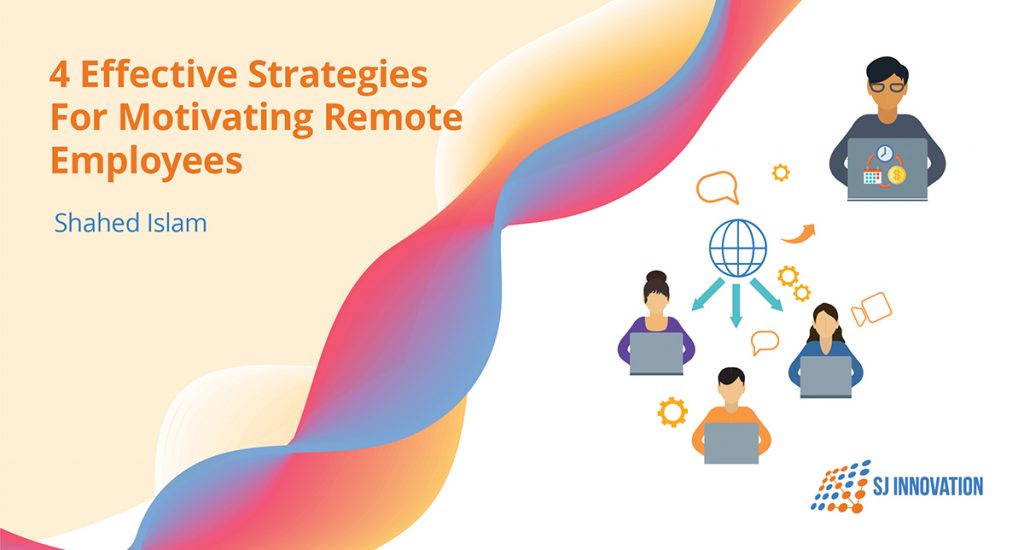4 Effective Strategies for Motivating Remote Employees

As more and more individuals opt for the idea of working remotely, employers are also embracing the same because of the benefits it avails. Most employees value flexible working hours, and that is why remote workers are increasing by the day.
Unfortunately, the risk of feeling out of place is quite high among remote employees, which eventually creates a disconnection between employers and such members of staff. Remote workers need some motivation to remain engaged, reach their potential, and to acquire a sense of team-belonging as well. Here are some of the approaches you can use to motivate your remote employees.
1. Adopt A Mission-Driven Business Approach
Your company's mission is the driving force that yields success. If the priorities and interests of your remote workers are in line with your business mission, they will pursue the latter wholeheartedly. In that case, you should focus on communicating the values of your enterprise effectively when assigning tasks to your remote workforce.
Those who work remotely need to understand how they can propel your firm forward, and that is only possible when they fully realize how they can support your business mission. The recruiting process also offers a platform for identifying the interests and priorities of specific candidates, and a close assessment will help you discover whether their focus is in line with your company's mission or not.
A mission-driven business approach acts as a natural motivation for remote workers.
2. Opt for Video Calls
Words are deceiving! In this era of telephone conversations, people tend to say one thing while implying something else altogether. The absence of face-to-face interactions makes some phone conversations deceiving, and, in such situations, gathering the truth becomes a challenge. Opting to hold video call meetings with remote workers instead of calling them on the phone is a better idea.
Body language conveys a lot of information, which you may not capture through phone calls, but video calls will help you understand your remote employees better. Additionally, the energy you portray as a business owner via video calls can be contagious, and that will motivate your remote workers to give their best.
3. Prioritize Your Remote Workers Wellbeing
Going the extra mile to show your remote staff members that you mind their welfare will cost you nothing. Caring for your remote workforce creates a sense of belonging among them, thus motivating them to deliver desirable results.
For instance, getting to understand the working schedules and lifestyle of each of your remote workers is critical because it helps in setting video call meetings with them at the right time.
Catching up socially with specific remote employees using a quick text and sending them a gift for their birthday are other ways you can use to show care and build a personal relationship with such workers.
4. Set Clear Goals and Measure Performance
It is needless to say that most remote workers want to finish their assignments for the day as fast as they can so they can focus on other responsibilities at home or elsewhere. The implication, in this case, is that your remote workforce needs a sense of direction on what they should accomplish each day.
Take time to set clear goals for each of your remote staff members as well as a plan for measuring their performance over time. When remote employees discover that they have daily targets to meet and that they will undergo a performance review at some point, they become more productive and engaged because this approach creates a sense of motivation among them.
Conclusion
As much as your remote workforce is out of sight, you cannot afford to ignore its contribution to the success of your enterprise. For that reason, motivating your remote workers becomes an essential aspect of consideration if you want to keep them engaged while seeking to bring out the best in them.

Developing Leadership Skills and Taking Accountability: How-To Guide

T (Together) E (Everyone) A (Achieves) M (More)


